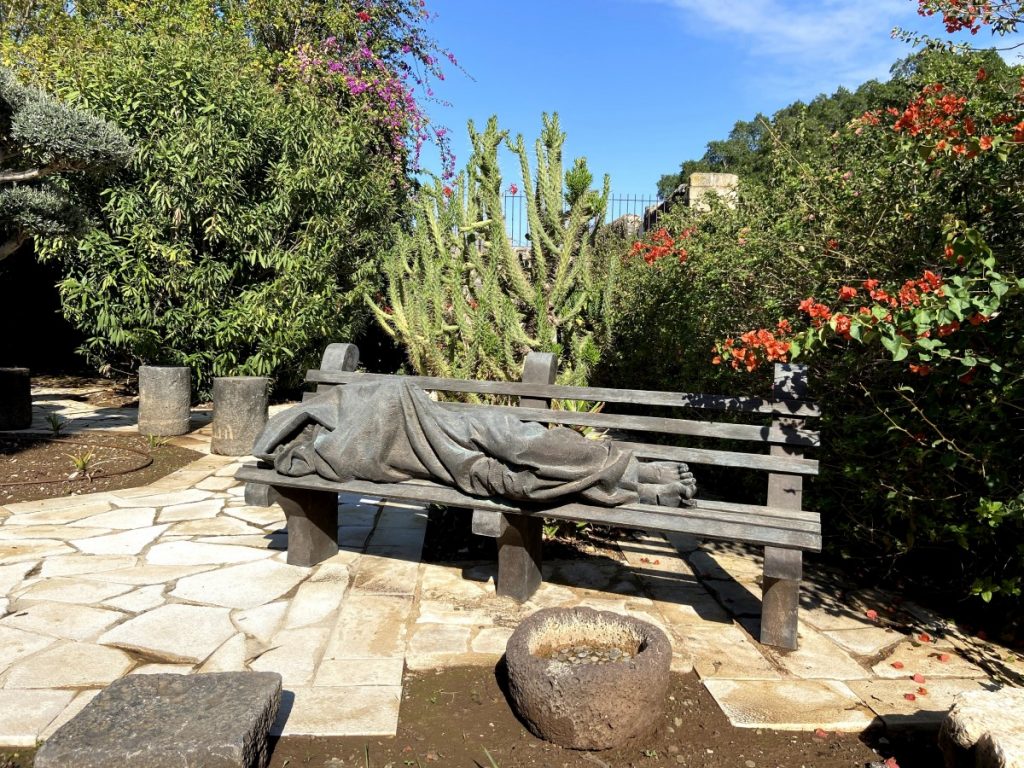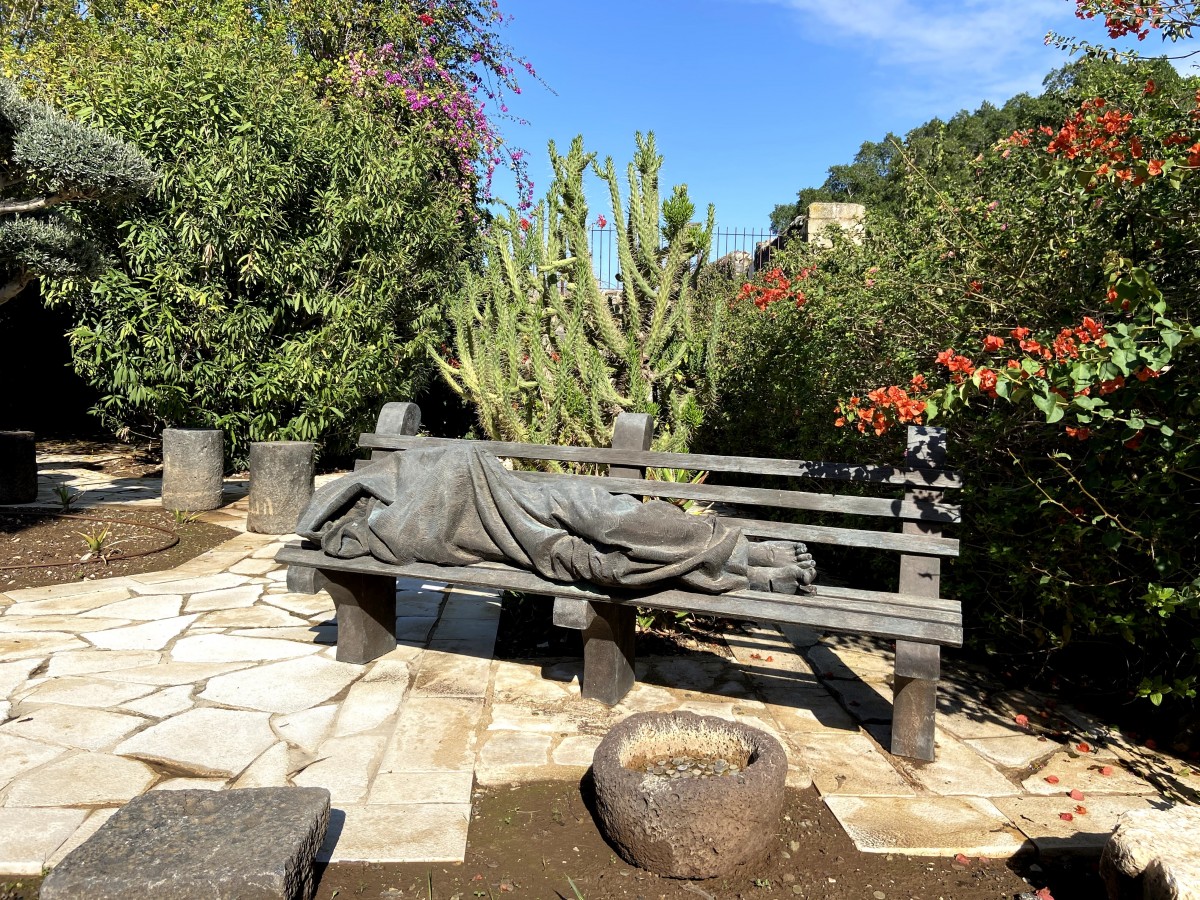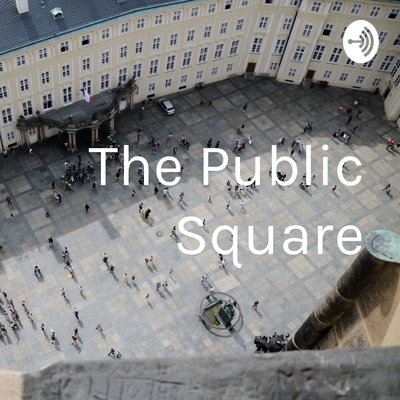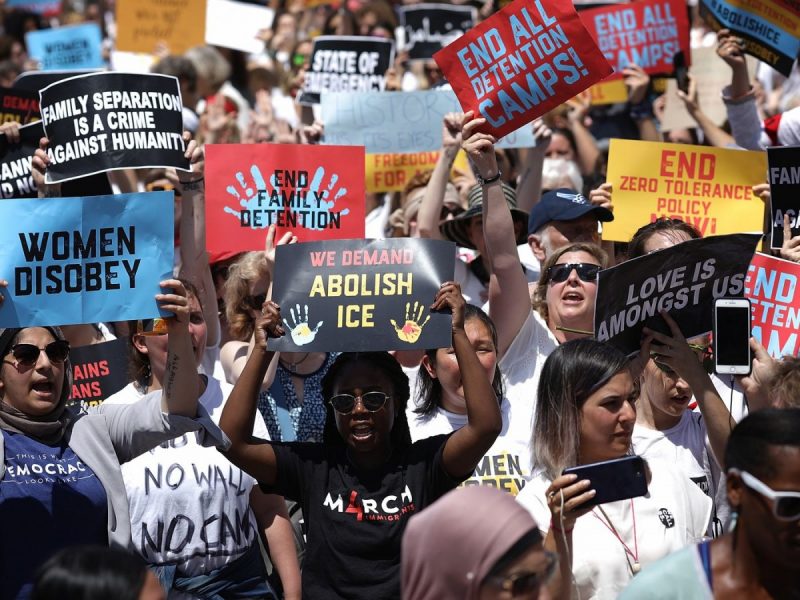by Ashley Seng for RE610: Be(com)ing Christian
Poverty is a public issue in the United States, and the world. According to the United Nations, 736 million people in the world are living below the poverty line[1], and nearly 40 million are living within the United States.[2] This problem, however, is not just a public and societal problem, but it is one with theological implications.
There are countless issues at the core of this problem, such as brokenness in the governmental systems that keep people in stuck in the cycle of poverty. Aside from the facts and data, first-hand stories show us some of the problems that prevent people from getting out of poverty, even when they are attempting to do all they can to move forward. The KRWC Samaritans podcast tells the story of Christine Curtiss, a woman who has lived on the streets of Los Angeles for nearly ten years. The reporter shares Christine’s first-hand experience of trying to get housing, shelter, and even access to doctors and medicine. Despite doing all she can, ultimately, the lack of housing and people who work in the social services slowed down the process of Christine finding housing.
Another first-hand experience is that of Julia Dinsmore, whose book entitled My Name Is Child of God…Not “Those People” surveys her experience of living in deep poverty, in and out of housing and the many obstacles she and her sons had to overcome when it came to receiving welfare, medical assistance, and much more. One example of an obstacle was when she described, “I had managed to support us for two years but did not have medical coverage. I had to sell the van to qualify for the state assistance program, because it was $703 over the asset limit.”[3] Her lament is that it is nearly impossible to live life in America without transportation, but it is also impossible to live in America without enough money or without medical care. This example shows how because of the facts and figures and system requirements based on those facts and figures, people living in poverty are often stuck in poverty because their assets qualify them for too much, so they can’t qualify for other necessities to move them up economically. It seems like poverty is too big an issue—there are too many problems at the core of our systems and services and government to solve it. This is a public crisis, nationally and globally.
Did you know that there are nearly two-thousand references to the problem of poverty in the Bible? What are we, as Christians, to do? Poverty is a public issue and a theological one. So, what does the Bible have to say about poverty? Jesus was a poor man, wasn’t he?

Much of the Bible is actually about socioeconomics and many of the laws in the Old Testament, to which Jesus refers to frequently in the New Testament, are about caring for the poor and living communally out of abundance, and not scarcity. Passages like the following:
- “When you reap the harvest of your land, you shall not reap to the very edges of your field, or gather the gleanings of your harvest. You shall not strip your vineyard bare, or gather the fallen grapes of your vineyard; you shall leave them for the poor and the alien: I am the Lord your God. You shall not steal; you shall not deal falsely; and you shall not lie to one another. And you shall not swear falsely by my name, profaning the name of your God: I am the Lord.” (Leviticus 19:9-12, NRSV)
- “Do not store up for yourselves treasures on earth, where moth and rust consume and where thieves break in and steal; but store up for yourselves treasures in heaven, where neither moth nor rust consumes and where thieves do not break in and steal. For where your treasure is, there your heart will be also… No one can serve two masters; for a slave will either hate the one and love the other, or be devoted to the one and despise the other. You cannot serve God and wealth.” (Matthew 6:19-21, 24, NRSV)
- “One of the dinner guests, on hearing this, said to him, “Blessed is anyone who will eat bread in the kingdom of God!” Then Jesus said to him, “Someone gave a great dinner and invited many. At the time for the dinner he sent his slave to say to those who had been invited, ‘Come; for everything is ready now.’ But they all alike began to make excuses…So the slave returned and reported this to his master. Then the owner of the house became angry and said to his slave, ‘Go out at once into the streets and lanes of the town and bring in the poor, the crippled, the blind, and the lame.’ And the slave said, ‘Sir, what you ordered has been done, and there is still room.’ Then the master said to the slave, ‘Go out into the roads and lanes, and compel people to come in, so that my house may be filled.For I tell you, none of those who were invited will taste my dinner.’” (Luke 14:15-18, 21-24, NRSV)
This blog post can hardly cover the depth and significance of these passages, but the Bible is providing a framework to live in such a way that allows us to help the poor, constructively, not simply by throwing goods at them and bandaging the problem. Many of these passages are not exactly translatable to today—many of us are not living in agricultural areas, where we can leave the edge of our field for the poor—and yet, there are still ways to take the concepts and apply them to our world, especially as Christians.
While much of what we must do has to happen at a societal and governmental level, how can we look at these passages through a poverty hermeneutic? How does thinking of our world in a mindset of abundance, truly trusting in God’s providence, and not a mindset of scarcity, like that of the ancient Israelites, change the way we interact and share our wealth? Below, I will provide some resources for further reading and some questions.
Parker Palmer writes about the problems of privatization, which I think is directly related to the problem of poverty. He says, “we surround ourselves with people who look and think and act like us—if they refuse to conform, we can banish even them from our private lives.”[4] In other words, by privatizing our lives, we can ignore the public issues because they are not present within our circles. But, we are called to something beyond that—some combination of theology and religious education towards the public sphere. Palmer says that we have a “capacity to honor one’s own uniqueness and the uniqueness of others while honoring the deep things we have in common as well—this capacity is the finest fruit of ‘spirituality of public life.”[5] By getting to know our neighbors who are and are not living in poverty, we humanize the issue and are more easily able to apply the biblical stances on poverty to begin to alleviate the issue on a local level.
Poverty will not be solved over night, but our churches should have something to say and DO about it. In serving the poor, we serve Jesus himself.
Read:
- My Name is Child of God…Not “Those People” by Julia K. Dinsmore
- Always with Us? What Jesus Really Said about the Poor by Liz Theoharis
- “All the Way Down”: A Spirituality of Public Life by Parker J. Palmer
Ask:
- How can we reflect on the Bible and teach and preach about passages that directly speak about poverty and caring for the poor?
- How can we take action based on what we are then learning in our church communities?
- What are our churches’ typical mission projects with the poor? How can we create more sustainable missions and work, in which we can actually be in community with those we are serving?
[1] United Nations, “Ending Poverty,” n.d., https://www.un.org/en/sections/issues-depth/poverty/.
[2] Poverty USA, “The Population of Poverty USA,” n.d., https://www.povertyusa.org/facts.
[3] Julia K. Dinsmore, My Name Is Child of God…Not “Those People”: A First Person Look at Poverty (Minneapolis, MN: Augsburg Books, 2007), 88.
[4] Parker J. Palmer, Caring for the Commonweal: Education for Religious and Public LIfe (Macon, GA: Mercer University Press, 1990), 155.
[5] Palmer, 163.




1 Comment
Add Yours →Ashley, thank you for this really thoughtful post! I like what Palmer says about privatization and how it also has the effect of protecting our personal lives from the pain of confronting public issues. Then we remain in our (illusory) bubble of privacy, perhaps assuming that our political apparatus will take care of “those people.”